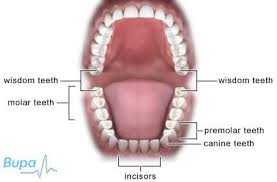Have you ever heard of wisdom teeth? Or maybe you already have a few of them? They do not add to our knowledge or intelligence. But they can cause a lot of problems with oral health.
What are these special teeth? Who gets them and when do they appear, and do they really cause more trouble than good? We will tell you about all this and whether it is worth removing wisdom teeth in detail. For this article, we were professionally advised by Dr. Daniel Ilyabayev, DDS (dentist in Queens New York)
What are wisdom teeth and does everyone have them?
We all know (or are learning right now) that an adult has 32 teeth. The first 28 permanent teeth appear in childhood and adolescence. They replace baby teeth. But the last four, the outermost teeth on the upper and lower jaw, are the wisdom teeth. They have this name because they appear at the “wise age”. Wisdom teeth can erupt at the age of 18, 25, 40, or later, or they may not erupt at all. This also happens.
Wisdom teeth are also called eights. Today, eights are considered non-functional because they do not perform any useful function, but simply exist. They are not involved in grinding food. And caring for them is very difficult because they are located farthest in the oral cavity. It is difficult to clean them thoroughly with a toothbrush, so they often suffer from caries.
Problems with wisdom teeth
Although wisdom teeth do not contribute to increasing mental abilities and are not an indicator of certain inclinations to wise actions, they are talked about a lot. This is primarily due to the problems that their appearance in the oral cavity can cause. Here are some of the main problems that most often occur because of wisdom teeth and that require the intervention of a professional dentist.
Wisdom teeth can damage healthy teeth
It would seem that additional healthy teeth in the oral cavity are good, and always beneficial. However, during eruption, wisdom teeth can cause more trouble than good and worsen the health of neighboring chewing teeth.
For example, this happens if a tooth grows at an angle instead of straight up and puts pressure on the neighboring tooth. Or it erupts very, very close to its neighbor and makes it impossible to clean the chewing tooth on that side. In the first case, the wisdom tooth presses and injures the structures of another tooth that performs chewing functions. This means that the previously healthy tooth will need treatment. In the second case, it will be difficult or impossible to remove food debris and bacterial plaque from the wall of the neighboring chewing tooth, so sooner or later caries will appear there.
They erupt unevenly and harm the mucous membrane
If the figure eight does not grow straight up, but at an angle to the cheek, it puts pressure on the oral mucosa. The tooth can not only put pressure, but also damage the cheek, which leads to discomfort and pain.
There is no room for them in the dentition
Often, the eruption of wisdom teeth leads to the displacement of other teeth in the dentition. Even when the eights grow straight and do not harm the mucous membrane or healthy teeth, they “take their place in the sun” and displace other teeth. Because of this, previously beautiful and straight teeth may move slightly forward, backward, or upward to fit.
They have tooth decay that is difficult to treat
As already mentioned, wisdom teeth are the last in the dentition. That is why they are not easy to clean thoroughly from all sides. Therefore, the appearance of caries on the eights is often only a matter of time. And it is precisely because of their location that they are difficult and sometimes impossible to treat. Therefore, instead of treatment, dentists often offer a not very pleasant alternative – wisdom tooth extraction. After all, it does not actually perform useful functions.
In what other cases it is recommended to remove wisdom teeth, and when it is recommended to leave them alone, find out in the next paragraph.
To remove or not to remove – that’s the question. What to do with wisdom teeth
There is a saying: don’t create problems where there are none. This statement gives a comprehensive answer to the Shakespearean question “To have wisdom teeth or not to have them. To remove them or not to remove them”.
That is, if the eights grow smoothly, do not harm either healthy teeth or the oral cavity, then they should not be touched. It’s another matter if their eruption or simply their presence in an unerupted state causes harm. In this case, the dentist really recommends getting rid of them by extracting them. In addition, extraction may be recommended at the stage when wisdom teeth have not erupted or have partially erupted. Thanks to an X-ray or panoramic dental image, the dentist can assess the specific position of the wisdom teeth and recommend their removal in advance before they cause problems.


